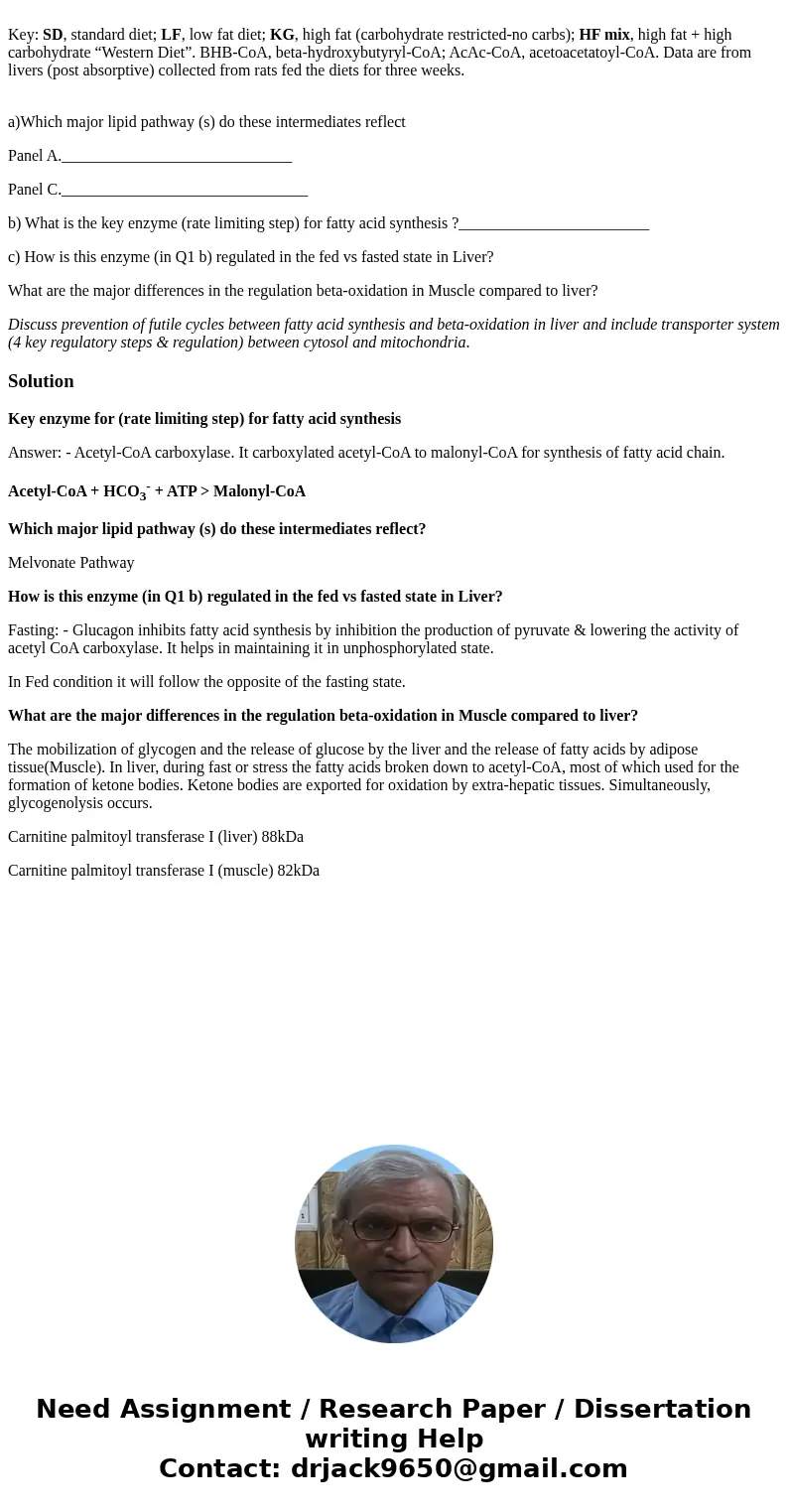Key SD standard diet LF low fat diet KG high fat carbohydrat
Key: SD, standard diet; LF, low fat diet; KG, high fat (carbohydrate restricted-no carbs); HF mix, high fat + high carbohydrate “Western Diet”. BHB-CoA, beta-hydroxybutyryl-CoA; AcAc-CoA, acetoacetatoyl-CoA. Data are from livers (post absorptive) collected from rats fed the diets for three weeks.
a)Which major lipid pathway (s) do these intermediates reflect
Panel A._____________________________
Panel C._______________________________
b) What is the key enzyme (rate limiting step) for fatty acid synthesis ?________________________
c) How is this enzyme (in Q1 b) regulated in the fed vs fasted state in Liver?
What are the major differences in the regulation beta-oxidation in Muscle compared to liver?
Discuss prevention of futile cycles between fatty acid synthesis and beta-oxidation in liver and include transporter system (4 key regulatory steps & regulation) between cytosol and mitochondria.
Solution
Key enzyme for (rate limiting step) for fatty acid synthesis
Answer: - Acetyl-CoA carboxylase. It carboxylated acetyl-CoA to malonyl-CoA for synthesis of fatty acid chain.
Acetyl-CoA + HCO3- + ATP > Malonyl-CoA
Which major lipid pathway (s) do these intermediates reflect?
Melvonate Pathway
How is this enzyme (in Q1 b) regulated in the fed vs fasted state in Liver?
Fasting: - Glucagon inhibits fatty acid synthesis by inhibition the production of pyruvate & lowering the activity of acetyl CoA carboxylase. It helps in maintaining it in unphosphorylated state.
In Fed condition it will follow the opposite of the fasting state.
What are the major differences in the regulation beta-oxidation in Muscle compared to liver?
The mobilization of glycogen and the release of glucose by the liver and the release of fatty acids by adipose tissue(Muscle). In liver, during fast or stress the fatty acids broken down to acetyl-CoA, most of which used for the formation of ketone bodies. Ketone bodies are exported for oxidation by extra-hepatic tissues. Simultaneously, glycogenolysis occurs.
Carnitine palmitoyl transferase I (liver) 88kDa
Carnitine palmitoyl transferase I (muscle) 82kDa

 Homework Sourse
Homework Sourse